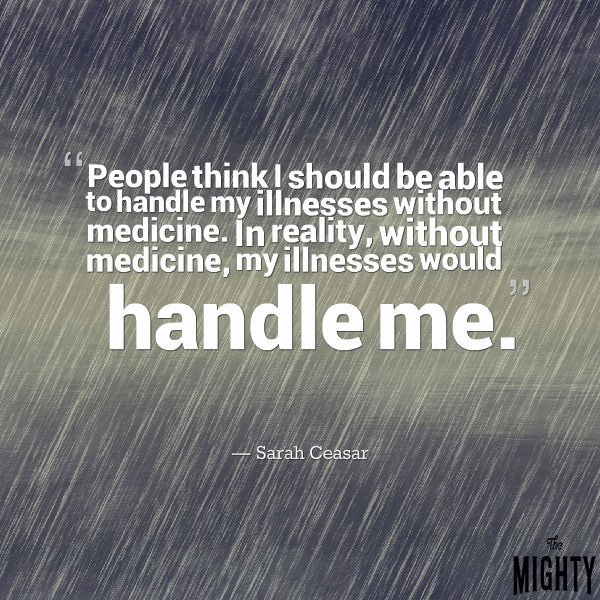
A person who has a mood disorder often feels broken, sometimes irreparably so. At times we know that what we are experiencing is fleeting and it will go away; the darkness will recede and we will once again feel whole. Sometimes it is more difficult to believe that the light will return at all.
This is on my mind a lot lately. In the last week alone I have had three anxiety attacks and my mood and anxiety have been very off for the last few weeks.
After two decades of living with recurring depression and anxiety I accept that what I have is a chronic illness - it is never far from my mind when I am well. I approach each day and week with this in mind and I always have a game plan. What is in my calendar at work? Do I have a few days with back to back meetings and little downtime to work quietly at my desk? Is my social calendar too full or just right? If I do this thing on Tuesday will I be exhausted on Wednesday? How will that impact the rest of my week? How will I ensure that I eat properly?
Managing my mental health requires daily attention and I am constantly assessing things and measuring the impact on my life and health. Many people don't understand that. When someone says, "but it's just for one day" when they ask me to take something big on, they don't get that it's never just about one day for me. I am a little like that duck on the pond - I may look at peace but under the water I am paddling like mad.
I have gotten much better about recognizing what is good for me and what is not so good. But having an understanding of the negative impact that something might have on my mental health is one thing. I also need to advocate for myself and sometimes make some hard choices to safe guard my well-being.
Speaking up for myself is not always easy or comfortable. I used to fear it, especially in the workplace. Like anything, however, with practice it gets easier. And I know that when I voice a concern for myself, I am also doing it for others - friends and colleagues who don't feel safe or comfortable doing so themselves.
The lovely thing that I have discovered during my life with mental illness is this: I am not alone. I have come to see over the years that there are many of us who occasionally feel broken. But here's the secret - shh, don't tell anyone - none of us is actually broken. Our cracks and blemishes actually make us stronger and that is a really beautiful thing.
The Japanese have an art of repairing broken pottery with lacquer dusted or mixed with gold, silver or platinum. It's a process called Kintsugi or Golden Repair.
“When the Japanese mend broken objects, they aggrandize the damage by filling the cracks with gold. They believe that when something's suffered damage and has a history it becomes more beautiful.” ― Barbara Bloom
What a truly lovely idea. Perhaps we can learn something from this. Rather than feeling shame for illness that is often perceived as weakness, what if we actually brought attention to the beauty of our strength instead? And here's the other thing that I know for certain: that golden light of hope and happiness can and will come back.
KB xo











